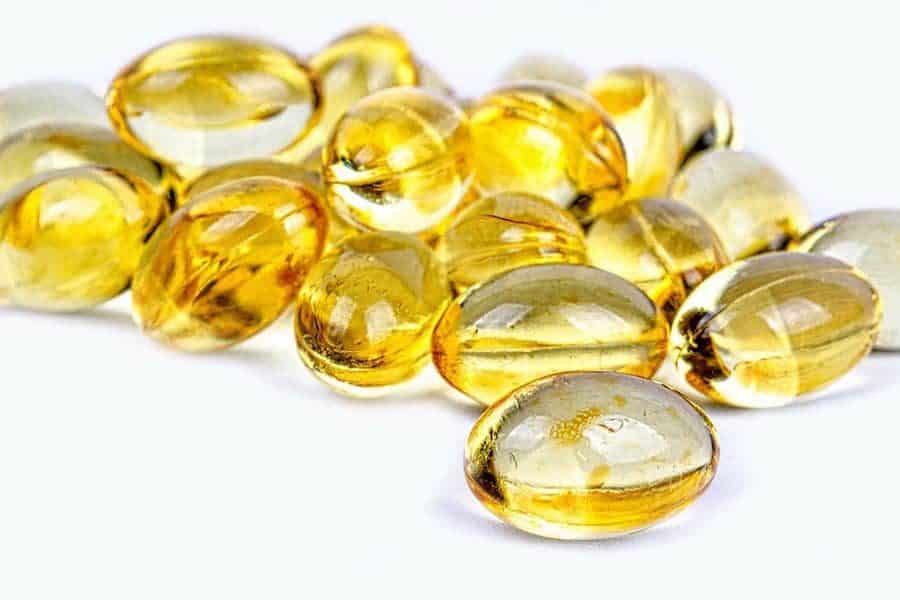Taking daily vitamin D supplements could help slow the cellular aging process by protecting telomeres—the protective caps at the ends of chromosomes that naturally shorten as we age, according to new findings from a major clinical trial published in The American Journal of Clinical Nutrition.
The four-year study of over 1,000 adults found that vitamin D3 supplementation prevented the equivalent of nearly three years of aging compared to placebo, offering the first large-scale evidence that this common supplement may help counter biological aging at the cellular level.
The research emerges from VITAL, one of the largest randomized controlled trials examining vitamin D supplementation. Unlike previous smaller studies with mixed results, this investigation tracked participants for four years and measured actual changes in telomere length over time.
What Makes This Study Different
Telomeres function like plastic tips on shoelaces, preventing chromosomes from degrading or fusing together. These DNA sequences naturally shorten with age and are linked to increased risk of age-related diseases. While scientists have long suspected connections between vitamin D and cellular aging, proving it required a robust clinical trial.
“VITAL is the first large-scale and long-term randomized trial to show that vitamin D supplements protect telomeres and preserve telomere length,” said co-author JoAnn Manson, the study’s principal investigator and chief of the Division of Preventive Medicine at Brigham and Women’s Hospital. “This is of particular interest because VITAL had also shown benefits of vitamin D in reducing inflammation and lowering risks of selected chronic diseases of aging, such as advanced cancer and autoimmune disease.”
The study followed 1,054 participants—women 55 and older and men 50 and older—for four years. Researchers measured telomere length in white blood cells at the start, after two years, and at the four-year mark.
The Numbers Tell the Story
Participants who took 2,000 IU of vitamin D3 daily experienced significantly less telomere shortening compared to those taking placebo pills. The difference translates to preventing about 140 base pairs of telomere loss, which researchers calculated as preserving nearly three years worth of typical aging.
But what about omega-3 fatty acids? Despite some earlier suggestions that fish oil supplements might also protect telomeres, this study found no significant effect from taking 1 gram daily of marine omega-3 fatty acids.
A Molecular View of Aging
The findings add another piece to the puzzle of how vitamin D influences health beyond its well-known role in bone health. Previous studies have suggested vitamin D supplementation may reduce inflammation and lower risks of certain cancers and autoimmune diseases. Now researchers can point to a specific cellular mechanism.
Think of telomeres as cellular clocks. Each time a cell divides, telomeres get shorter. When they become too short, cells can no longer divide properly and may become senescent or die. This process contributes to aging and age-related diseases.
The research team used a precise laboratory technique called quantitative PCR to measure telomere length at multiple time points, providing more reliable data than previous studies that relied on single measurements.
Key Research Findings
- Vitamin D3 supplementation reduced telomere shortening by 140 base pairs over four years
- The effect was equivalent to preventing nearly three years of typical aging
- Omega-3 fatty acid supplements showed no significant impact on telomere length
- Benefits appeared consistent across the four-year study period
What This Means for You
Should everyone start taking vitamin D supplements based on these results? Not necessarily. The study participants were older adults, and researchers emphasize that more work is needed to understand optimal dosing and who might benefit most.
“Our findings suggest that targeted vitamin D supplementation may be a promising strategy to counter a biological aging process, although further research is warranted,” said first author Haidong Zhu, a molecular geneticist at the Medical College of Georgia, Augusta University.
The study used 2,000 IU daily, which is higher than the typical recommended dose for bone health but within safe limits established by health authorities. However, vitamin D levels vary widely among individuals based on factors like sun exposure, diet, and genetics.
The Bigger Picture
This research fits into a growing understanding of how lifestyle factors influence cellular aging. While we can’t stop the aging process entirely, emerging evidence suggests certain interventions might slow it down at the molecular level.
The VITAL trial, funded by the National Heart, Lung and Blood Institute, represents years of meticulous research involving thousands of participants across the United States. Such large-scale studies provide the statistical power needed to detect effects that smaller investigations might miss.
As researchers continue analyzing data from this landmark trial, we may discover additional ways that simple interventions like vitamin D supplementation influence health spans—not just lifespans. For now, the telomere findings add compelling evidence to vitamin D’s growing resume of potential health benefits.
What other everyday supplements or lifestyle choices might be silently influencing our cellular clocks? That question will likely drive the next generation of aging research.
If our reporting has informed or inspired you, please consider making a donation. Every contribution, no matter the size, empowers us to continue delivering accurate, engaging, and trustworthy science and medical news. Independent journalism requires time, effort, and resources—your support ensures we can keep uncovering the stories that matter most to you.
Join us in making knowledge accessible and impactful. Thank you for standing with us!

